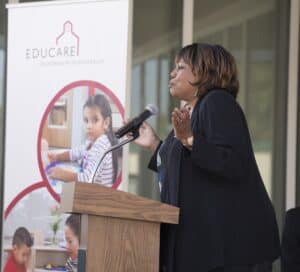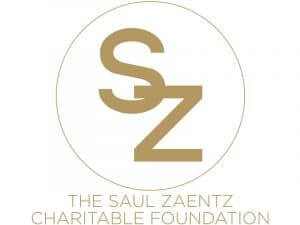This week, President Joe Biden is expected to approve Congress’ final budget reconciliation package, the Inflation Reduction Act, which does not include one cent for early learning and care programs. This outcome is yet another senseless decision in our nation’s history that leaves countless young children without access to critical programs that can help ensure a brighter future.
This spring, the House of Representatives passed budget reconciliation legislation that included nearly $400 billion for child care and pre-K, which was among the largest proposed investments in the package. However, earlier this month, the Senate unveiled the details of its final package, which included no funding at all for early learning and care.
For a nation’s child care system that is at the brink of collapse, this investment would have considerably lowered child care costs for families, allowed parents of young children to return to work and supported an underfunded and understaffed early learning and care workforce.
Long before today’s ongoing pandemic and societal uncertainty, child care providers, disproportionately women and women of color, have had to bear the burden of an under-resourced child care system to provide critical, quality programs and services to young children.
So, now more than ever, it seemed apparent to finally prioritize American families and child care providers with historic investments. Congress’ failure to do so will result in long-range consequences for our child care system.
Start Early and the Educare Network, however, are and will continue to be constant and persistent champions for our youngest learners. We will:
- Work with Congress, federal agencies and the administration, as well as state and local leaders, to strengthen early learning and care programs and drive advancements that impact on-the-ground practices and communities
- Advocate for increased investments in and positive changes to federal early learning programs, including the Child Care Development Block Grant, Head Start/Early Head Start, Individuals with Disabilities Education Act and Maternal, Infant Early Childhood Home Visiting program
- Educate and inform the field of provisions within the Inflation Reduction Act that may benefit families with young children
In addition, as co-chair of the Early Years Climate Action Task Force, Start Early President Diana Rauner will play a role in drafting the first ever climate action plan for early childhood in America. This will include recommendations to explore how the country can support young children to flourish, despite facing the impacts of climate change.
In response to this disheartening news, Start Early and Educare Network leaders issued the following statements:
Start Early
“Quality early learning and care in the first five years of life allows every child the opportunity to develop and meet their full potential. This week, Congress ignored common sense and science, allowing the child care system to continue deteriorating and leaving future generations behind.
Start Early stands ready to continue its work with local, state and federal leaders to elevate the dire, diverse needs of American families and ultimately make transformational change in access, quality and outcomes for all young children.”
— Diana Rauner, president of Start Early
Educare Network
“Every child, in every community, deserves a strong start in life. This final reconciliation package entirely disregards what matters most: creating supports and systems that work for families, our youngest learners and early care and education providers. With our 25 schools and partner organizations across the country, the Educare Network calls on local, state and federal leaders to take immediate action that rights this wrong and drives transformational change to ensure all families, children and communities can thrive.”
— Cynthia Jackson, executive director of the Educare Network

 After a career in early childhood education spanning three decades, Portia Kennel – catalyst and one of the co-founders of the
After a career in early childhood education spanning three decades, Portia Kennel – catalyst and one of the co-founders of the  The Saul Zaentz Charitable Foundation is deeply committed to creating standards of fairness and a level playing field for those living in poverty and adversity by supporting equal treatment through high quality early childhood learning and improving K-12 and college graduation rates. Founded in 1997, the Foundation is focused on opportunities that support educational advancement.
The Saul Zaentz Charitable Foundation is deeply committed to creating standards of fairness and a level playing field for those living in poverty and adversity by supporting equal treatment through high quality early childhood learning and improving K-12 and college graduation rates. Founded in 1997, the Foundation is focused on opportunities that support educational advancement.

